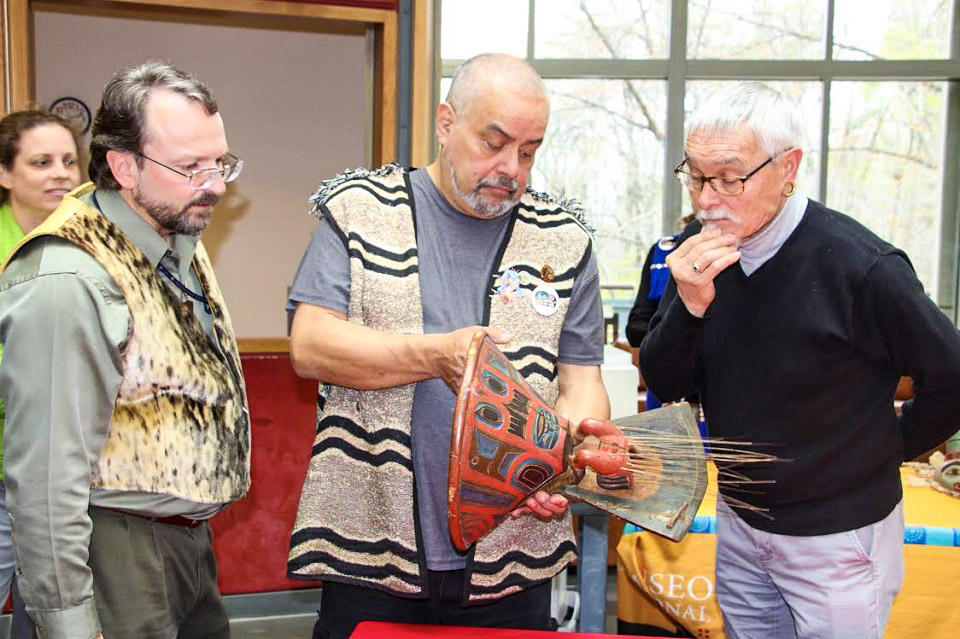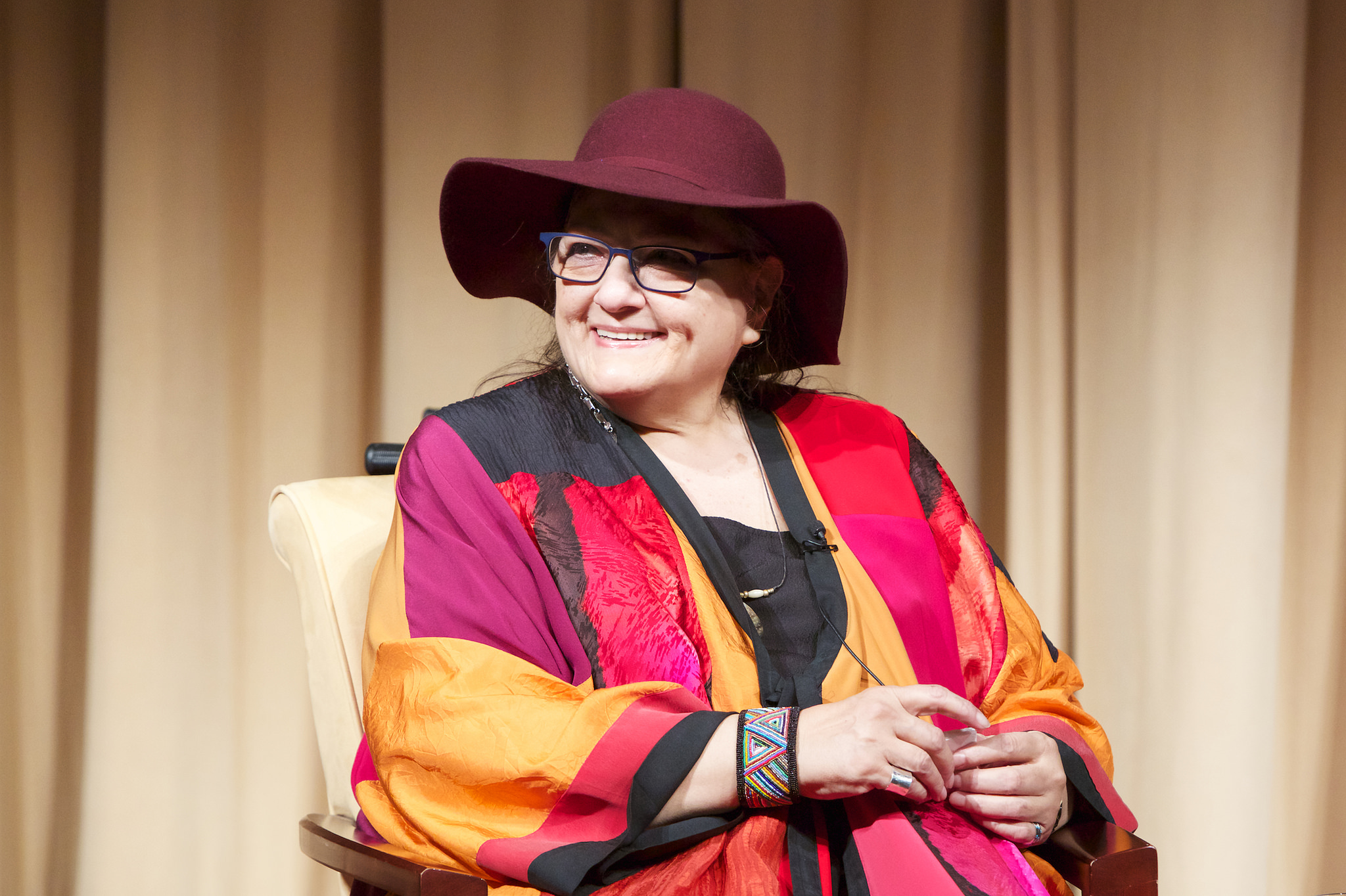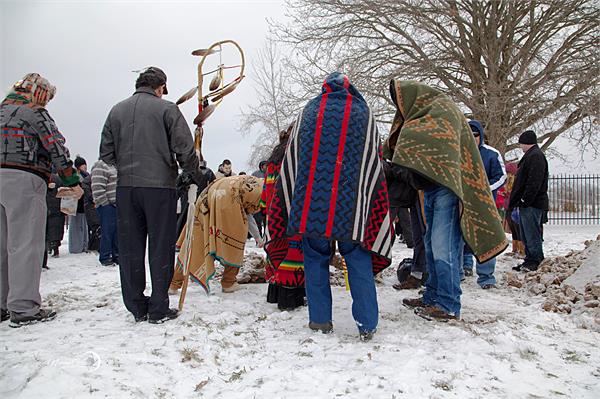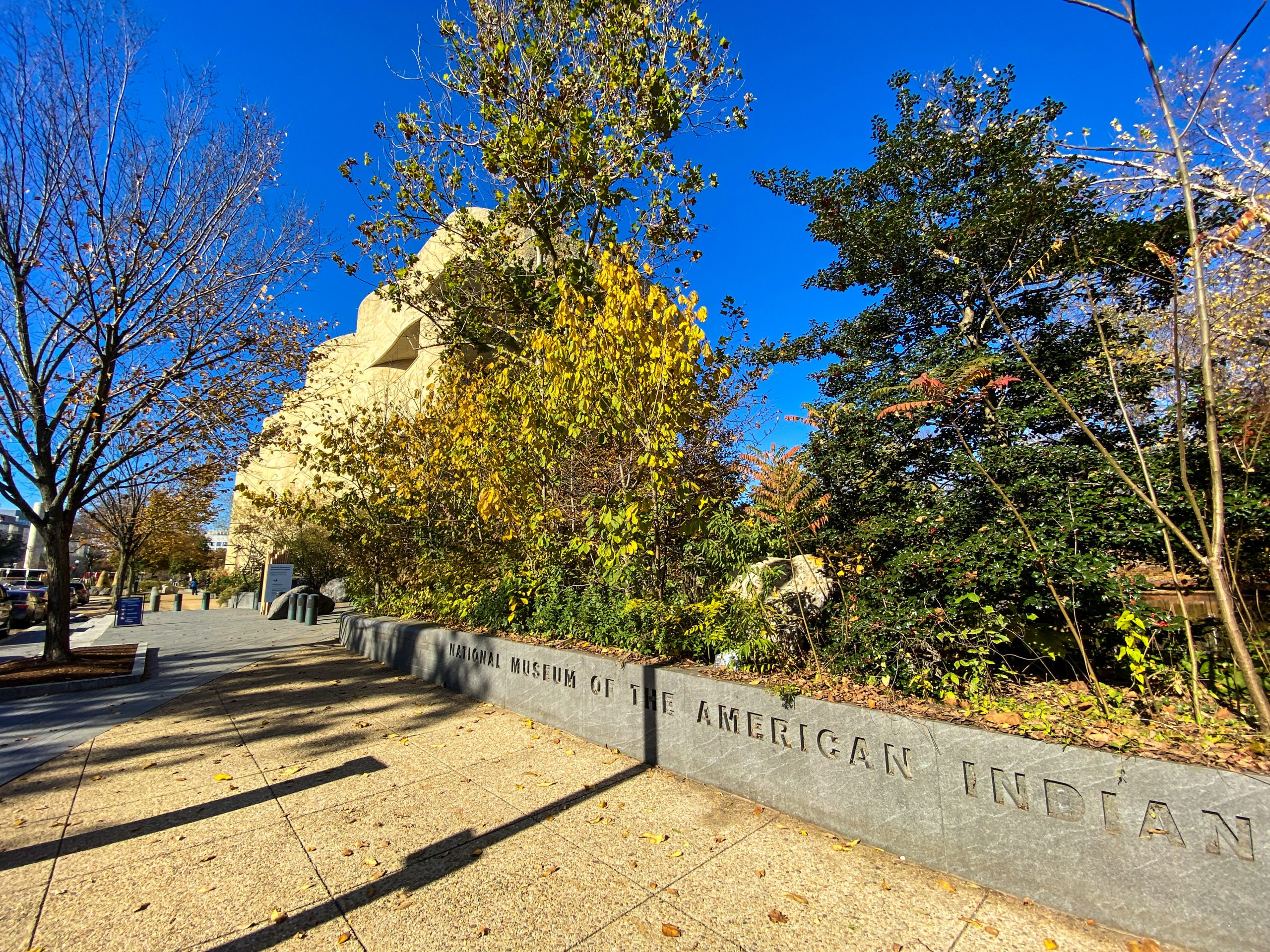Indianz.Com > News > Indian Country Today: Repatriation law marks major milestone

Native American Graves Repatriation Act turns 30
Despite federal law ordering their repatriation, thousands of ancestors remains still languish in boxes and basements
Monday, November 23, 2020
Indian Country Today
An antique Cheyenne girl’s dress spotted with blood in a natural history museum’s display case.
A cabinet of skulls in the Smithsonian museum with labels identifying them only by tribal affiliation.
These are a few of the gruesome sights that galvanized Native American advocates to advocate for creation of the Native American Graves Protection and Repatriation Act (NAGPRA) that was passed 30 years ago this month.
The law was enacted to require federal agencies and institutions such as schools and museums receiving federal funding and holding collections of Native American remains and cultural items to engage in a process to transfer these items to lineal descendants, tribes, Alaska Native or Native Hawaiian organizations.
The Indian Legal Program at Arizona State University recently organized a webinar, “NAGPRA: 30 Years and Beyond,” to explore the history and future of the law.
Presenters included advocates who helped bring the law forward including Suzan Harjo, Cheyenne/Hodulgee Muscogee, writer, curator, policy advocate and president of the Morning Star Institute and James Riding In, Pawnee, founding member and associate professor, American Indian Studies at Arizona State University. Shannon Keller O’Loughlin, a citizen of the Choctaw Nation of Oklahoma, is executive director and attorney with the Association of American Indian Affairs, which has built a national and international effort assisting U.S. tribes and communities with domestic and international repatriation. He also presented. The passage of NAGPRA has helped tribes create an infrastructure in order to carry out the work of repatriating remains and cultural items held by institutions. Before the law was enacted, the examples of the Cheyenne girl’s dress and cabinet of skulls were common sights in museum display cases all over the U.S. Native American remains as well as their funerary (or grave goods) and cultural items were viewed by scientists and the public as resources to be collected and studied at will. “Our ancestors were commodified and thought of as someone’s property that could be owned like a butterfly collection,” said Harjo.Today, our Executive Director and Attorney Shannon O'Loughlin joined Suzan Shown Harjo and James Riding In for a webinar with Indian Law Program at @ASUCollegeOfLaw to discuss the 30th anniversary of #NAGPRA. pic.twitter.com/XFzW6qZvss
— Association on American Indian Affairs (@IndianAffairs) November 16, 2020



Mary Annette Pember, a citizen of the Red Cliff Ojibwe tribe, is a national correspondent for Indian Country Today. Follow Pember on Twitter @mapember. Based in Cincinnati, Ohio. Pember loves film, books and jingle dress dancing.
This article originally appeared on Indian Country Today LLC, a nonprofit, public media enterprise. ICT does not charge for subscriptions and tribal media (or any media, for that matter) can use the publiciation’s content for free. Contribute to the nonprofit Indian Country Today.
Search
Filed Under
Tags
More Headlines
Native America Calling: Young ‘Champions’ inspire positive change
‘We’re here too late’: Indian Country slams changes to education programs
VIDEO: Economic Self-Determination in Action: Examining Small Business Administration Native 8(a) Program
AUDIO: Economic Self-Determination in Action: Examining Small Business Administration Native 8(a) Program
Chuck Hoskin: Cherokee Nation invests in our citizens
Native America Calling: 2026 State of Indian Nations
Native America Calling: New art exhibitions offer creative interpretations of Native survival and endurance
AUDIO: Legislative Hearing to receive testimony on S.2098, S.1055 & S.699
VIDEO: Legislative Hearing to receive testimony on S.2098, S.1055 & S.699
Native America Calling: Can caribou slow the drive for oil and mineral development in Alaska?
Cronkite News: Judge questions targeting of Democratic lawmaker
Testimony: Leanndra Ross of Southcentral Foundation
Testimony: Dayna Seymour of Colville Tribes
Testimony: Darrell LaRoche of Indian Health Service
Senate Committee on Indian Affairs hosts hearing for tribal health bills
More Headlines
‘We’re here too late’: Indian Country slams changes to education programs
VIDEO: Economic Self-Determination in Action: Examining Small Business Administration Native 8(a) Program
AUDIO: Economic Self-Determination in Action: Examining Small Business Administration Native 8(a) Program
Chuck Hoskin: Cherokee Nation invests in our citizens
Native America Calling: 2026 State of Indian Nations
Native America Calling: New art exhibitions offer creative interpretations of Native survival and endurance
AUDIO: Legislative Hearing to receive testimony on S.2098, S.1055 & S.699
VIDEO: Legislative Hearing to receive testimony on S.2098, S.1055 & S.699
Native America Calling: Can caribou slow the drive for oil and mineral development in Alaska?
Cronkite News: Judge questions targeting of Democratic lawmaker
Testimony: Leanndra Ross of Southcentral Foundation
Testimony: Dayna Seymour of Colville Tribes
Testimony: Darrell LaRoche of Indian Health Service
Senate Committee on Indian Affairs hosts hearing for tribal health bills
More Headlines